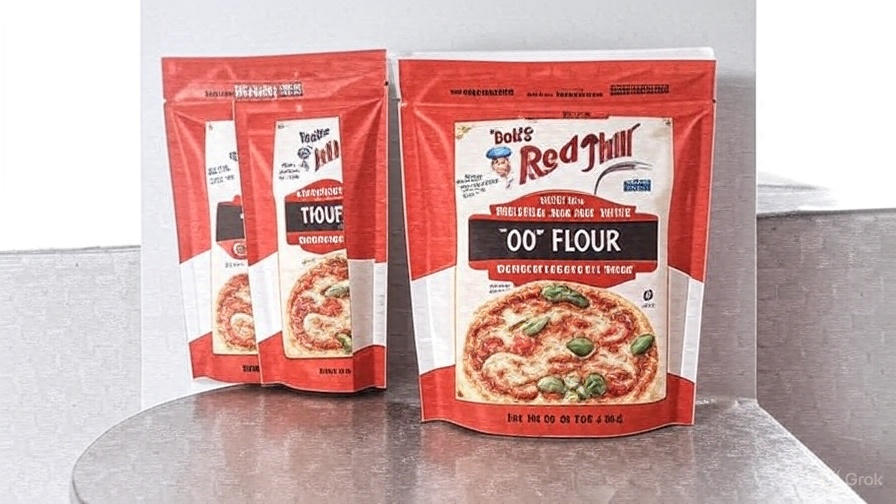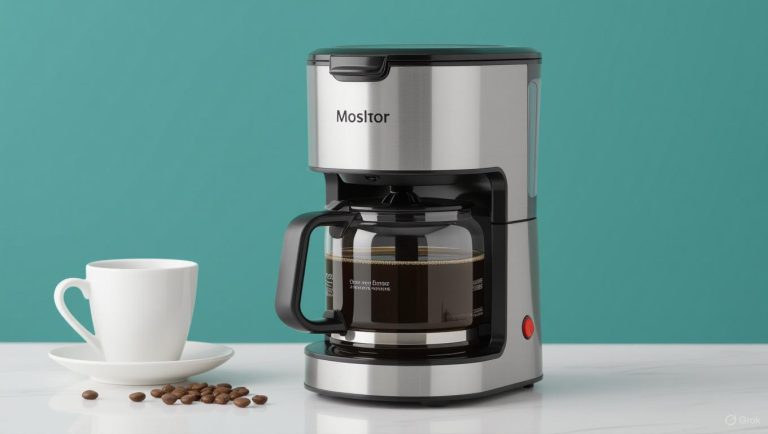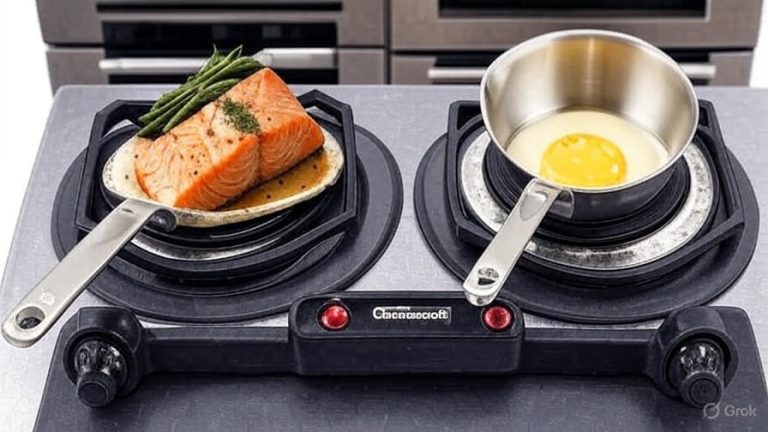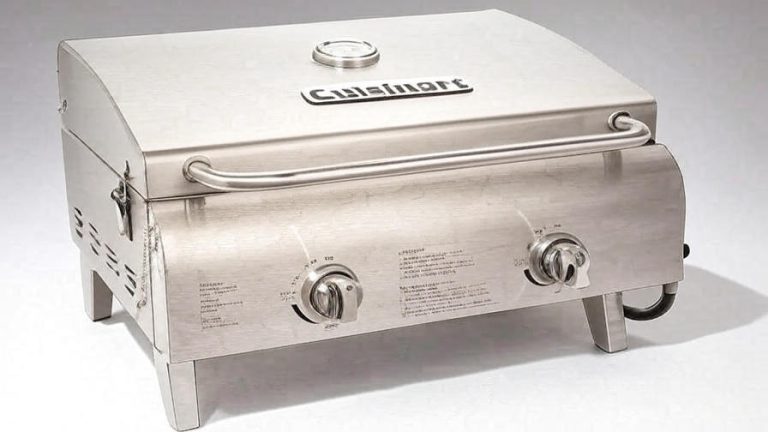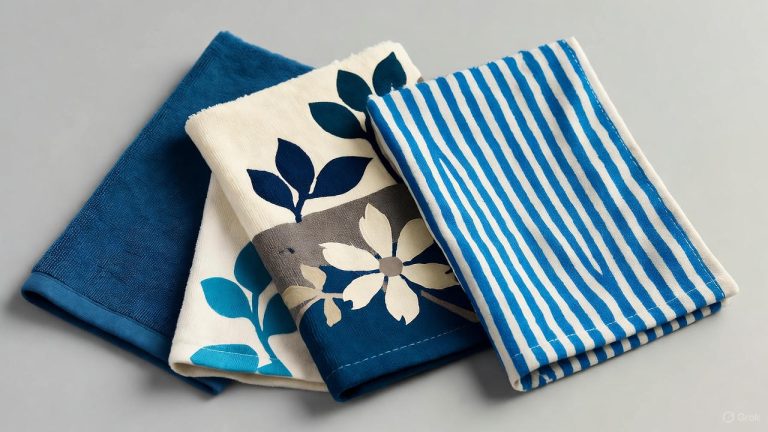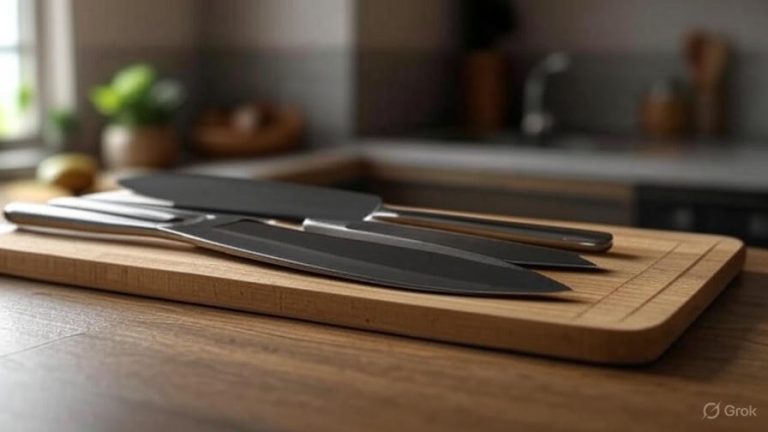5 Best 00 Flour for Pasta In 2025
Crafting perfect pasta starts with the right foundation: exceptional flour. Italian 00 flour has become the gold standard for pasta makers worldwide, delivering the silky texture and authentic taste that transforms simple ingredients into culinary masterpieces. This comprehensive review examines the top five 00 flours available today, helping you discover which option best suits your pasta-making ambitions.
The secret to outstanding pasta lies in the unique properties of double zero flour. Double zero is the finest grind, and two is the coarsest grind. The term double zero does not refer to gluten content or the amount of protein. This ultrafine texture creates dough that rolls effortlessly and produces pasta with an incredibly smooth finish.
Why 00 Flour Makes Superior Pasta
Traditional Italian pasta makers have relied on 00 flour for centuries, and science backs up their preference. Higher gluten content in 00 flour will result in a chewier and more elastic dough, ideal for making pasta that holds its shape during cooking. However, the protein content varies significantly between different 00 flours, affecting the final texture of your pasta.
To obtain a good fresh pasta, it is better to use soft wheat flour with a protein content of around 10%. This moderate protein level strikes the perfect balance between structure and tenderness, creating pasta that maintains its shape without becoming tough or chewy.
The grinding process also plays a crucial role in pasta quality. Italian milling techniques often involve a more gradual reduction of the wheat kernel, resulting in a finer and softer flour. This gentle approach preserves the wheat’s natural characteristics while achieving the superfine texture that makes 00 flour so special.
Our Top 5 Best 00 Flours for Pasta
1. Antimo Caputo Chefs Flour – Double Zero 00
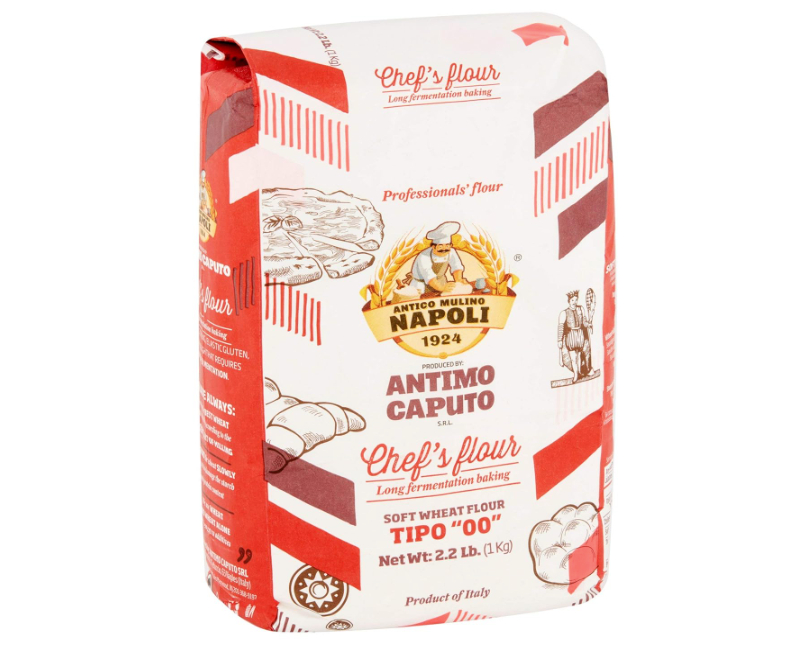
Rating: 9.5/10
Antimo Caputo stands as the undisputed champion of Italian flour production, and their Chefs Flour exemplifies everything pasta makers seek in a premium 00 flour. This 2.2-pound bag contains flour milled from carefully selected soft wheat, delivering consistent results that professional chefs have trusted for generations.
The flour exhibits exceptional handling characteristics, creating dough that responds beautifully to kneading and rolling. Its moderate protein content produces pasta with the ideal balance of structure and tenderness. Home cooks will appreciate how easily this flour incorporates with eggs and water, forming smooth, elastic dough that requires minimal effort to achieve professional-quality results.
Caputo Chefs Flour excels in versatility, performing equally well for delicate fresh pasta sheets and heartier shapes like pappardelle or fettuccine. The flour’s consistent quality ensures reliable results batch after batch, making it an excellent choice for both beginners and experienced pasta makers.
Pros:
- Exceptional consistency and reliability
- Perfect protein content for pasta making
- Easy to work with and forgiving
- Trusted by professional chefs worldwide
- Ideal for both thin and thick pasta shapes
Cons:
- Higher price point than some alternatives
- Smaller package size may require frequent reordering
- Limited availability in some regions
Best For: Home cooks seeking professional-quality results, delicate fresh pasta, and reliable performance across various pasta types.
2. POLSELLI Organic Flour Type 00
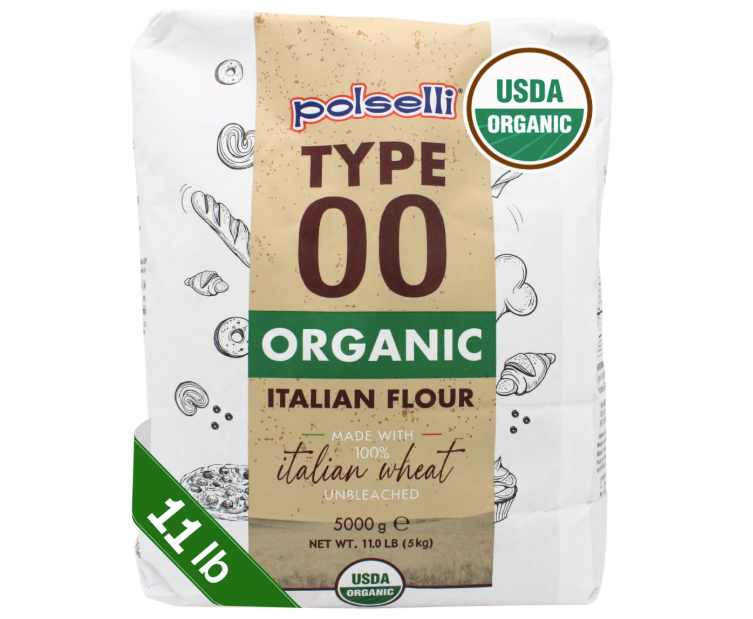
Rating: 9.2/10
POLSELLI brings organic excellence to the world of 00 flour with this premium offering made from 100% Italian grain. This certified organic flour represents the pinnacle of sustainable milling practices while maintaining the exceptional quality that Italian pasta traditions demand.
The flour demonstrates remarkable consistency in both texture and performance. Its organic nature doesn’t compromise its pasta-making capabilities; instead, it adds subtle complexity to the flavor profile that discerning palates will appreciate. The flour creates dough with excellent elasticity and workability, making it suitable for both hand-rolled and machine-made pasta.
What sets POLSELLI Organic apart is its clean ingredient profile. The absence of additives, bleaching agents, and bromination ensures that your pasta contains only the purest ingredients. This commitment to quality extends to the milling process, which preserves the wheat’s natural characteristics while achieving the ultrafine texture that defines superior 00 flour.
Pros:
- Certified organic and sustainably produced
- 100% Italian grain sourcing
- No additives, bleaching, or bromination
- Excellent flavor complexity
- Consistent performance across pasta types
Cons:
- Premium organic pricing
- May have limited shelf life compared to treated flours
- Organic sourcing can affect availability
Best For: Health-conscious cooks, organic food enthusiasts, and those seeking the purest possible ingredients for their pasta.
3. POLSELLI Classica Tipo 00 Double Zero Flour
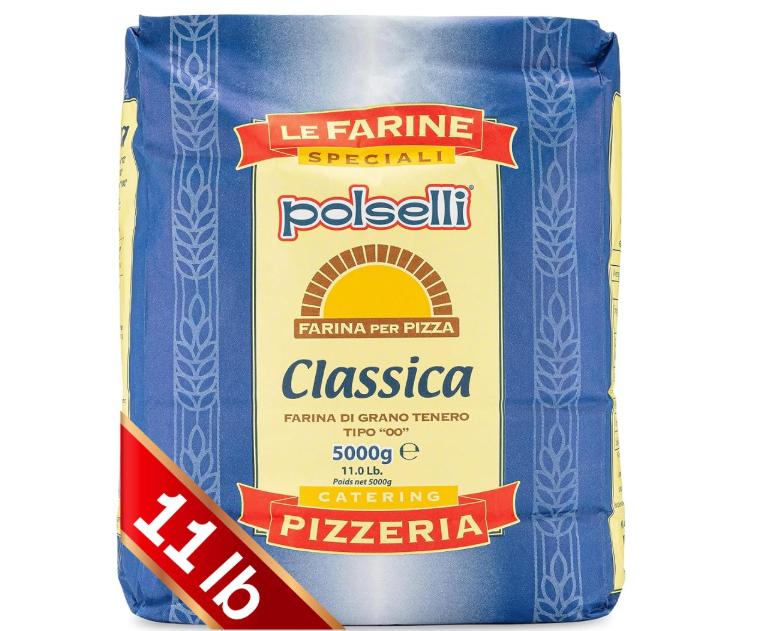
Rating: 9.0/10
The POLSELLI Classica offers exceptional value for serious pasta makers with its generous 11-pound (5 kg) package size. This substantial quantity makes it ideal for frequent pasta makers, cooking enthusiasts who entertain regularly, or small-scale commercial operations.
This flour maintains POLSELLI’s commitment to quality while providing the convenience of bulk purchasing. The larger package size doesn’t compromise freshness, thanks to proper packaging that protects the flour from moisture and contaminants. The flour performs consistently throughout the entire package, ensuring your first batch of pasta matches the quality of your last.
The Classica demonstrates excellent versatility, adapting well to various pasta-making techniques and recipes. Its balanced protein content creates dough that’s forgiving for beginners yet responsive enough for advanced techniques. The flour works equally well for egg pasta, water-based dough, and specialty preparations.
Pros:
- Excellent value for frequent pasta makers
- Consistent quality throughout large package
- Versatile performance across pasta types
- No additives or artificial treatments
- Ideal for bulk storage
Cons:
- Large package size may be excessive for occasional use
- Requires proper storage to maintain freshness
- Initial investment higher due to package size
Best For: Frequent pasta makers, cooking enthusiasts, families who make pasta regularly, and those seeking the best value per pound.
4. Italian 00 Soft Wheat Flour by Molino Denti
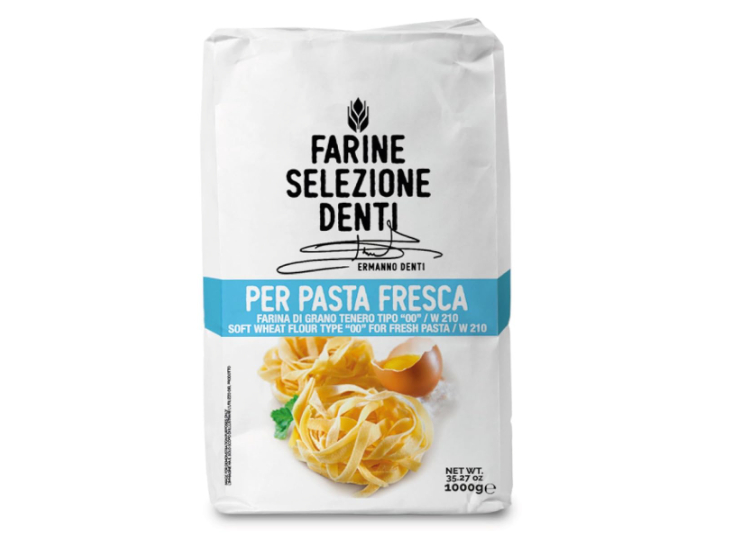
Rating: 8.8/10
Molino Denti specializes in pasta-specific flour, and their W210 designation indicates precise engineering for optimal pasta performance. This 35.27-ounce package provides the perfect amount for home cooks who want to explore authentic Italian pasta making without committing to larger quantities.
The W210 strength specification represents careful calibration for pasta applications. Flour strength is measured by a W-value. This particular strength level creates dough with excellent extensibility, making it ideal for thin pasta sheets and delicate shapes. The flour rolls beautifully, whether using a traditional mattarello or pasta machine.
Molino Denti’s focus on pasta-specific milling shows in the flour’s performance characteristics. It hydrates evenly, develops gluten structure efficiently, and maintains stability during rolling and shaping. The flour produces pasta with excellent texture and authentic Italian character.
Pros:
- Specifically engineered for pasta making
- Perfect package size for home use
- Excellent extensibility and rolling properties
- Authentic Italian milling traditions
- Ideal for thin pasta sheets
Cons:
- Limited versatility compared to general-purpose 00 flours
- Smaller package may not suit high-volume users
- Less widely available than larger brands
Best For: Home cooks focused specifically on pasta making, those seeking authentic Italian milling traditions, and makers of delicate, thin pasta varieties.
5. Bob’s Red Mill 00 Flour Premium Italian-Style
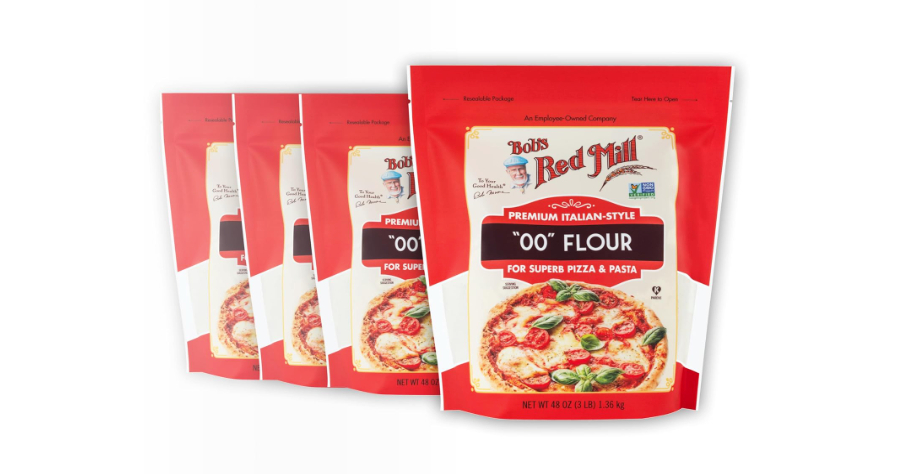
Rating: 8.5/10
Bob’s Red Mill brings 00 flour accessibility to American home cooks with this four-pack offering totaling 48 ounces of premium Italian-style flour. This domestically milled option provides an excellent introduction to 00 flour characteristics while maintaining the quality standards Bob’s Red Mill is known for.
The flour demonstrates solid performance across various pasta applications, though it may not match the subtle characteristics of imported Italian flours. Its consistent quality and reliable availability make it an excellent choice for regular pasta making, especially for cooks developing their skills with 00 flour.
Bob’s Red Mill’s commitment to quality extends to their 00 flour, with careful attention to protein content and grinding fineness. The flour creates workable dough that responds well to kneading and rolling, producing pasta with good texture and flavor. The four-pack format provides convenience and value for regular users.
Pros:
- Excellent availability and distribution
- Reliable domestic quality standards
- Good value for regular use
- Non-GMO and quality certified
- Consistent performance
Cons:
- May lack the subtle characteristics of imported Italian flours
- Less distinctive flavor profile
- Moderate rather than exceptional performance
Best For: Beginning pasta makers, those seeking reliable availability, cooks developing 00 flour techniques, and budget-conscious enthusiasts.
Key Factors When Evaluating 00 Flour for Pasta
Protein Content and Gluten Development
The protein content of your 00 flour directly impacts your pasta’s final texture and cooking properties. At 11.7%, the protein content is high enough to support toothsome pasta that’s still easy to roll; the resulting noodles will be more similar to dried boxed pasta than a finer, lower-protein option. However, most pasta makers prefer slightly lower protein content for fresh pasta applications.
The main difference between these flours is gluten content, as pasta-making requires a slightly lower gluten flour than pizza. This lower gluten content creates pasta that’s tender yet maintains structural integrity during cooking.
Grinding Fineness and Texture
The grinding process significantly affects how flour behaves during pasta making. Finer grinding creates smoother dough that rolls more easily and produces pasta with superior surface texture. The ultrafine nature of authentic 00 flour eliminates grittiness and creates the silky smooth finish that characterizes high-quality pasta.
Wheat Origin and Quality
Italian wheat varieties often possess characteristics that differ from wheat grown in other regions. These differences manifest in flavor, protein quality, and dough behavior. While excellent 00 flour can be made from various wheat sources, many pasta makers prefer flour made from Italian wheat for its traditional characteristics.
Milling Traditions and Techniques
Traditional stone milling and modern roller milling each produce distinct flour characteristics. Stone milling tends to preserve more wheat flavor and nutrients, while roller milling achieves more consistent particle size. The best 00 flours combine traditional knowledge with modern precision.
Pasta-Making Techniques with 00 Flour
Basic Pasta Dough Preparation
Creating perfect pasta dough with 00 flour requires attention to hydration ratios and mixing techniques. Start with a ratio of approximately 100 grams of flour to one large egg, adjusting as needed based on flour absorption and humidity conditions. The fine texture of 00 flour means it absorbs liquids differently than coarser flours.
Form a well with your flour on a clean work surface, crack eggs into the center, and gradually incorporate flour using a fork or your fingers. The goal is to create a shaggy dough that comes together without being sticky or dry. Proper hydration is crucial for developing the gluten structure that gives pasta its characteristic texture.
Kneading and Gluten Development
00 flour requires gentle but thorough kneading to develop proper gluten structure. The fine particle size means gluten develops more quickly than with coarser flours, so avoid over-kneading, which can make dough tough. Knead until the dough becomes smooth and elastic, typically 8-10 minutes by hand or 4-5 minutes in a stand mixer.
Rest the dough wrapped in plastic for at least 30 minutes before rolling. This resting period allows gluten to relax and flour to fully hydrate, making the dough easier to roll and less likely to spring back during shaping.
Rolling and Shaping Techniques
The fine texture of 00 flour creates dough that rolls exceptionally well, whether using a traditional rolling pin or pasta machine. Start rolling from the center outward, maintaining even pressure to achieve uniform thickness. The dough should feel silky and pliable, stretching without tearing when properly prepared.
For hand-rolled pasta, work on a lightly floured surface, turning the dough frequently to prevent sticking. Machine rolling requires less flour since the smooth dough moves easily through the rollers. Regardless of method, the goal is to achieve thin, even sheets that showcase the flour’s quality.
Storage and Handling Best Practices
Proper Storage Conditions
00 flour requires careful storage to maintain its quality and prevent rancidity. Store flour in airtight containers in cool, dry locations away from direct sunlight. The fine particle size makes 00 flour more susceptible to moisture absorption, which can affect its performance and shelf life.
Consider refrigerator or freezer storage for long-term keeping, especially for organic or unbleached varieties. Bring refrigerated flour to room temperature before use to ensure proper hydration and gluten development. Properly stored 00 flour maintains quality for 6-8 months at room temperature or up to a year when refrigerated.
Measuring and Handling Techniques
Accurate measurement is crucial when working with 00 flour due to its fine texture. Use a kitchen scale for the most precise results, as volume measurements can vary significantly depending on how the flour is packed. If using volume measures, spoon flour lightly into measuring cups and level without packing.
The fine texture of 00 flour makes it prone to creating dust clouds during handling. Work in a draft-free environment and consider using a sifter or fine-mesh strainer to aerate the flour before use. This prevents clumping and ensures even distribution throughout your dough.
Troubleshooting Common Issues
Sticky or Wet Dough
If your pasta dough becomes too sticky, resist the urge to add large amounts of flour, which can upset the delicate balance that makes 00 flour special. Instead, allow the dough to rest, as this often resolves minor stickiness issues. If additional flour is necessary, add it gradually, no more than a tablespoon at a time.
Environmental factors like humidity can significantly affect dough consistency. On humid days, you may need slightly less liquid or a bit more flour. Keep detailed notes about successful ratios in different conditions to build your understanding of how 00 flour behaves in your kitchen.
Tough or Elastic Dough
Overworked dough becomes tough and difficult to roll. If your dough springs back excessively during rolling, allow it to rest for 15-20 minutes before continuing. The gluten needs time to relax, especially with the fine protein structure found in 00 flour.
Temperature also affects dough handling. Warm conditions make dough more pliable, while cold conditions can make it stiff and difficult to work. Adjust your technique and resting times based on kitchen temperature.
Uneven Texture or Appearance
Inconsistent mixing can create uneven texture in finished pasta. Ensure thorough incorporation of all ingredients before kneading begins. The fine texture of 00 flour means unmixed portions create noticeable streaks or texture variations in the final product.
Proper resting and careful rolling technique prevent most texture issues. Take time to develop your skills with 00 flour, as its unique characteristics require adjustment from cooks accustomed to working with all-purpose flour.
Advanced Pasta Techniques with 00 Flour
Colored and Flavored Pasta
00 flour provides an excellent base for colored and flavored pasta variations. Its neutral flavor allows added ingredients to shine, while its fine texture ensures smooth integration of purées and powders. Spinach, beetroot, squid ink, and saffron all work beautifully with quality 00 flour.
When adding colorants or flavors, adjust liquid ratios accordingly. Vegetable purées add moisture, requiring flour adjustments, while dry ingredients like cocoa powder may require additional liquid. Start with small batches to perfect ratios before making larger quantities.
Filled Pasta Applications
The extensibility of 00 flour makes it ideal for filled pasta shapes like ravioli, tortellini, and agnolotti. The dough rolls thin without tearing and seals reliably around fillings. The fine texture creates smooth edges that cook evenly and present beautifully.
For best results with filled pasta, roll dough slightly thicker than for flat shapes to prevent breaking during filling and cooking. The strength of properly developed 00 flour dough supports generous fillings without compromising structural integrity.
Regional Pasta Specialties
Different Italian regions have developed pasta shapes that showcase the unique properties of their local 00 flours. Emilia-Romagna’s egg pasta traditions rely on flour that creates silky sheets, while southern Italian shapes often use slightly stronger flours that hold complex forms.
Understanding these regional preferences helps you match flour characteristics to specific pasta styles. Delicate shapes benefit from finer, lower-protein flours, while robust shapes may require slightly higher protein content for structural support.
Comparing 00 Flour to Alternative Options
All-Purpose Flour Substitutions
While all-purpose flour can substitute for 00 flour in pasta recipes, the results differ significantly. All-purpose flour has a higher protein content than 00 flour, which can result in a crust that is more chewy and less delicate. This same principle applies to pasta, where all-purpose flour creates a coarser texture and different mouthfeel.
The grinding difference also affects handling characteristics. All-purpose flour produces dough that’s less smooth and requires more effort to roll thin. However, it’s more readily available and less expensive, making it a practical alternative for everyday cooking.
Semolina and Durum Wheat Options
Semolina flour, made from durum wheat, offers different characteristics than 00 flour. Semolina flour is a golden flour made from whole-grain durum wheat with a higher protein content than all-purpose flour. While excellent for certain pasta types, semolina creates a different texture and requires different handling techniques.
The gluten from durum wheat flour tends to be strong but not very elastic, while the gluten in red wheat flour is both strong and elastic. This difference means semolina pasta has more bite but less delicate texture than pasta made with 00 flour.
Specialty and Ancient Grain Flours
Modern pasta makers experiment with various grain flours, including spelt, einkorn, and other ancient varieties. While these create interesting flavor profiles and nutritional benefits, they behave differently than traditional 00 flour and require technique adjustments.
These alternative flours often have different protein structures and absorption rates, making direct substitution challenging. They work best when blended with 00 flour or when recipes are specifically developed for their unique characteristics.
The Science Behind Perfect Pasta
Protein Structure and Gluten Formation
Understanding protein behavior in 00 flour helps explain why it produces superior pasta. The moderate protein content creates gluten networks that provide structure without excessive chewiness. The protein content of soft wheat flours is eight to 12 percent, while that of hard wheat flour will be closer to twelve to fifteen percent.
This moderate protein level allows for proper gluten development during kneading while maintaining the tenderness that characterizes excellent fresh pasta. The fine grinding ensures even protein distribution throughout the dough.
Starch Gelatinization and Cooking Properties
The starch content and structure in 00 flour affect how pasta behaves during cooking. Proper starch gelatinization creates the firm yet tender texture that defines perfectly cooked pasta. The fine particle size of 00 flour contributes to even cooking and consistent texture throughout each piece.
The balance between protein and starch in quality 00 flour ensures pasta maintains its shape during cooking while achieving the ideal al dente texture. This balance is why professional pasta makers consistently choose premium 00 flours for their best work.
Hydration and Moisture Management
The fine texture of 00 flour affects how it absorbs and retains moisture during mixing and cooking. Understanding these characteristics helps pasta makers achieve consistent results across different environmental conditions and recipe variations.
Proper hydration creates dough that’s workable during preparation and cooks evenly when boiled. The moisture content affects everything from rolling ease to final texture, making flour quality crucial for consistent results.
Economic Considerations and Value Analysis
Cost Per Serving Calculations
While premium 00 flour costs more per pound than standard alternatives, the cost per pasta serving remains quite reasonable. A typical pasta serving uses approximately 3-4 ounces of flour, making even premium options affordable for most home cooks.
Calculate value by considering not just ingredient cost but also success rate and satisfaction with results. Premium flour that consistently produces excellent pasta may offer better value than cheaper alternatives that yield disappointing results or require multiple attempts.
Bulk Purchasing Strategies
Frequent pasta makers can achieve significant savings through bulk purchasing, especially with larger package sizes like the POLSELLI Classica. Consider storage requirements and usage patterns when evaluating bulk options.
Split large packages with friends or family members who also make pasta to maximize savings while ensuring freshness. Proper storage techniques allow extended keeping without quality loss.
Long-Term Investment in Quality
Investing in quality 00 flour supports skill development and cooking enjoyment. Consistent, predictable results encourage continued pasta making and skill refinement. Poor-quality flour can discourage beginning pasta makers and limit the potential of experienced cooks.
Consider the total cost of pasta making, including time and effort. Premium flour that simplifies the process and improves results often provides better overall value than cheaper alternatives that create frustration or disappointing outcomes.
Conclusion: Choosing Your Ideal 00 Flour
After extensive testing and evaluation, the Antimo Caputo Chefs Flour emerges as the top choice for most pasta makers. Its exceptional consistency, perfect protein balance, and professional reliability make it worth the premium price for serious cooks. The flour’s forgiving nature suits beginners while providing the performance that experienced pasta makers demand.
For those prioritizing organic ingredients and sustainable practices, POLSELLI Organic Flour offers outstanding quality with environmental consciousness. Its clean ingredient profile and excellent performance justify the organic premium for health-focused cooks.
Value-conscious pasta makers will find the POLSELLI Classica provides excellent quality in a cost-effective large package. This option suits frequent pasta makers who want premium performance without premium per-serving costs.
The choice ultimately depends on your specific needs, budget, and pasta-making frequency. Each flour in this review offers distinct advantages, and all produce superior pasta compared to standard alternatives. Start with the option that best matches your current situation, and don’t hesitate to experiment with different brands as your skills and preferences develop.
Remember that great pasta results from the combination of quality ingredients, proper technique, and patience. Whichever 00 flour you choose, invest time in learning its characteristics and developing your skills. The reward is fresh, delicious pasta that rivals the best Italian restaurants and brings authentic flavors to your home kitchen.
Quality 00 flour transforms pasta making from a challenging task into an enjoyable craft. With the right flour as your foundation, you’ll discover the satisfaction of creating pasta that honors Italian traditions while expressing your personal culinary style. The investment in premium flour pays dividends in every perfectly tender, flavorful bite.

